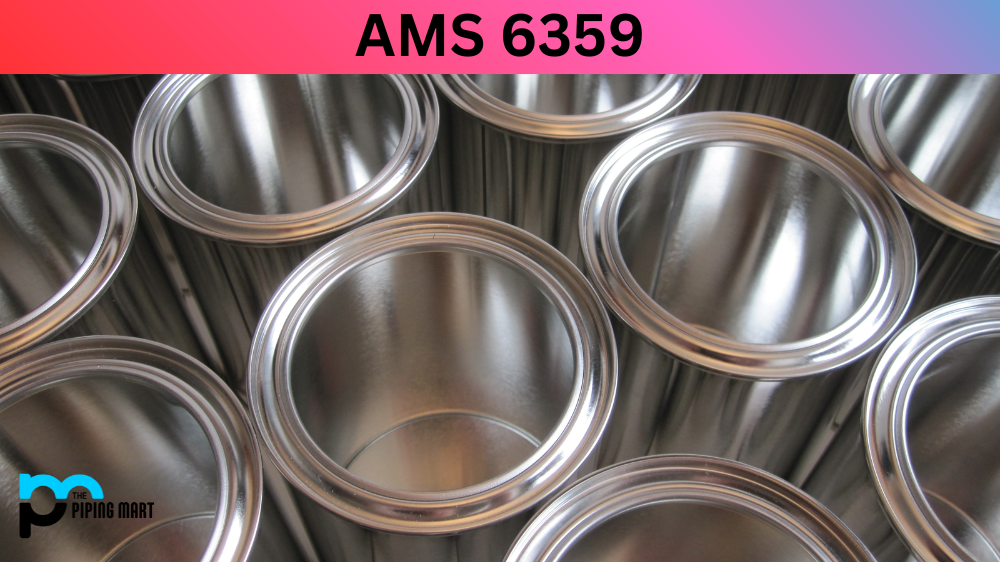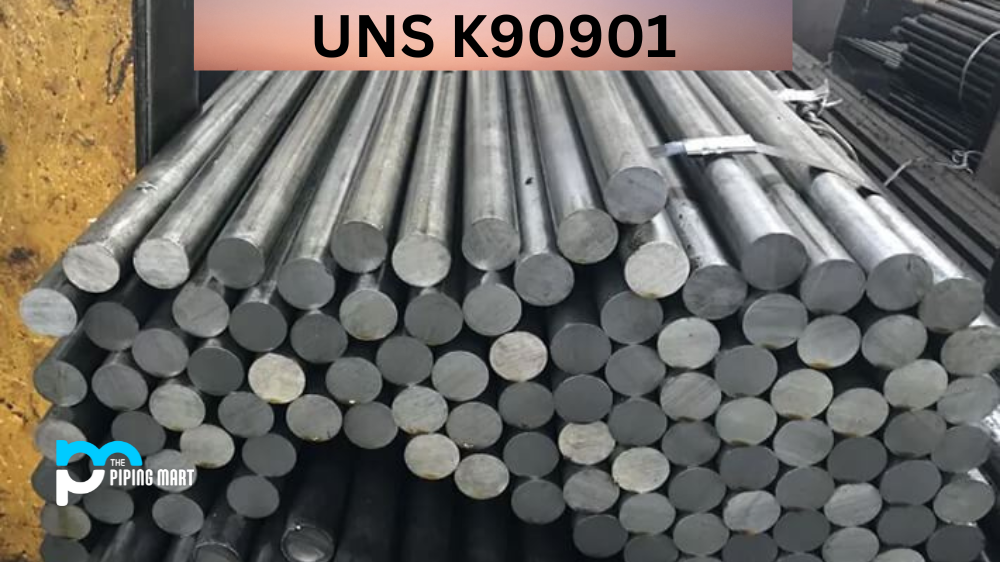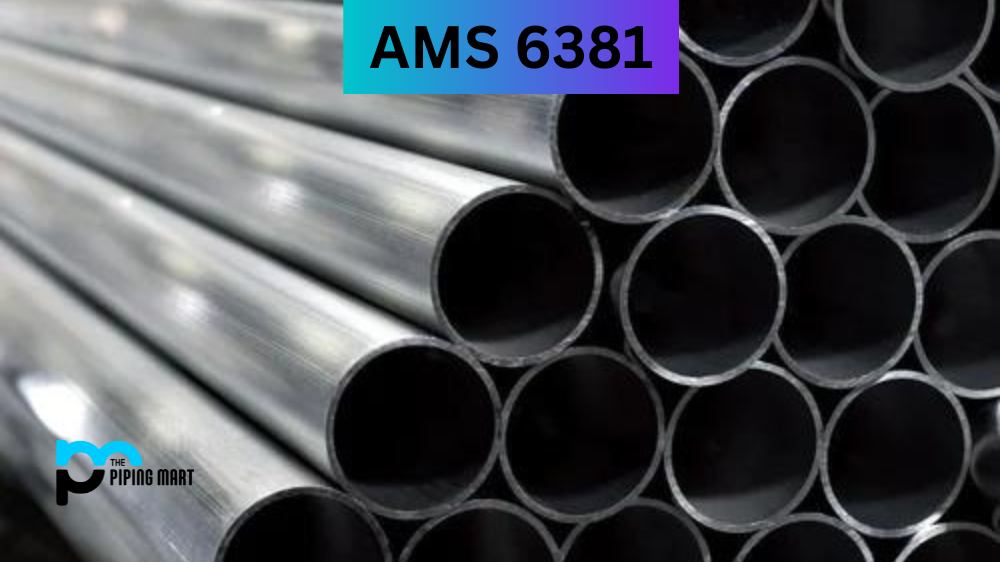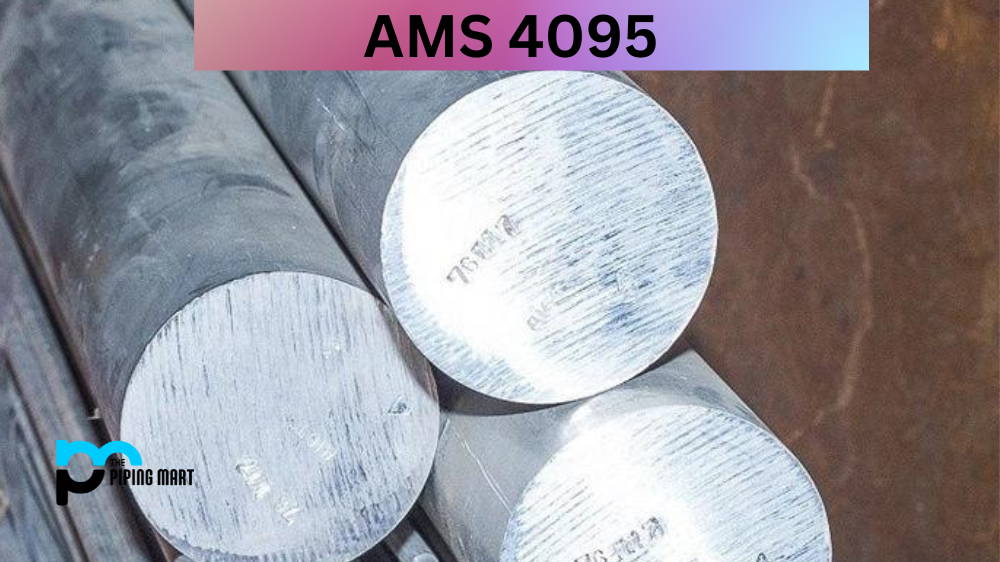Steel has been a fundamental material in different industries for its strength, durability, and versatility. One of the steel grades considered to be of high quality is SAE – AMS 6359. It is a low-alloy, high-strength steel developed for aircraft applications and used in the automotive and military industries. If you want to know more about AMS 6359 steel material, its composition, physical and mechanical properties, uses, and heat treatment, this blog post is for you.
What is AMS 6359?
AMS 6359 (also known as SAE – AISI 4340 Alloy Steel) metal is a type of alloy steel that has become increasingly popular recently. This aerospace-grade material is manufactured using a process known as vacuum arc remelting, which allows for a more consistent composition and improved mechanical properties. With its exceptional strength, fatigue resistance, and durability, AMS6359 is a popular choice for various applications, from aircraft components to industrial machinery. Additionally, this material has many unique benefits, making it an attractive option for manufacturers, including superior heat resistance and weldability. As demand for high-performance materials continues to rise, it’s no surprise that AMS 6359 metal is quickly becoming the go-to choice for engineers and designers alike.
What Form is AMS 6359 Available at Piping Mart?
- Alloy Steel AISI 4340 Bars
AMS 6359 Composition
AMS 6359 sheet is a low-carbon steel alloy composed of iron and small amounts of other chemical elements. The chemical composition is as follows: 0.08% Carbon, 0.45% Manganese, 0.20-0.35% Silicon, 0.90-1.20% Chromium, and 0.15-0.25% Molybdenum. It also has trace amounts of sulfur, phosphorus, nickel, and aluminium. AMS6359 steel is produced through electric melting or vacuum melting.
| Element | Content (%) |
|---|---|
| Iron, Fe | 95.195 – 96.33 |
| Nickel, Ni | 1.65 – 2.00 |
| Chromium, Cr | 0.700 – 0.900 |
| Manganese, Mn | 0.600 – 0.800 |
| Carbon, C | 0.370 – 0.430 |
| Molybdenum, Mo | 0.200 – 0.300 |
| Silicon, Si | 0.150 – 0.300 |
| Sulfur, S | 0.0400 |
| Phosphorous, P | 0.0350 |
AMS 6359 Physical Properties
AMS 6359 steel plate exhibits high tensile strength, good ductility, and corrosion resistance. Its density is around 7.85 g/cm³, and its melting point is about 1,510⁰C. The thermal expansion coefficient can range from 11.7 to 12.6 µm/m℃, depending on the condition of the material.
| Properties | Metric | Imperial |
|---|---|---|
| Density | 7.85 g/cm3 | 0.284 lb/in³ |
| Melting point | 1427°C | 2600°F |
AMS 6359 Mechanical Properties
AMS 6359 steel wire has excellent mechanical properties. It has a yield strength of 1160 MPa, a tensile strength of 1490 MPa, and an elongation of 10%. This steel alloy also has good impact resistance and fatigue strength. The hardness of AMS 6359 can be increased through heat treatment.
| Properties | Metric | Imperial |
|---|---|---|
| Tensile strength | 745 MPa | 108000 psi |
| Yield strength | 470 MPa | 68200 psi |
| Bulk modulus (typical for steel) | 140 GPa | 20300 ksi |
| Shear modulus (typical for steel) | 80 GPa | 11600 ksi |
| Elastic modulus | 190-210 GPa | 27557-30458 ksi |
| Poisson’s ratio | 0.27-0.30 | 0.27-0.30 |
| Elongation at break | 22% | 22% |
| Reduction of area | 50% | 50% |
| Hardness, Brinell | 217 | 217 |
| Hardness, Knoop (converted from Brinell hardness) | 240 | 240 |
| Hardness, Rockwell B (converted from Brinell hardness) | 95 | 95 |
| Hardness, Rockwell C (converted from Brinell hardness. Value below normal HRC range, for comparison purposes only) | 17 | 17 |
| Hardness, Vickers (converted from Brinell hardness) | 228 | 228 |
| Machinability (annealed and cold drawn. Based on 100 machinability for AISI 1212 steel.) | 50 | 50 |
AMS 6359 Equivalents
| AMS 6359 | AMS 6454 | ASTM A331 (4340) | ASTM A711 | SAE J1397 (4340) |
| AMS 6409 | ASTM A29 (4340) | ASTM A506 (4340) | ASTM A752 (4340) | SAE J404 (4340) |
| AMS 6414 | ASTM A320 (L43) | ASTM A519 (4340) | ASTM A829 | SAE J412 (4340) |
| AMS 6415 | ASTM A322 (4340) | ASTM A646 (4340-7) | MIL S-5000 |
AMS 6359 Specifications
| Country | USA | Britain | Britain | Japan |
| Standard | ASTM A29 | EN 10250 | BS 970 | JIS G4103 |
| Grades | 4340 | 36CrNiMo4/ 1.6511 |
EN24/817M40 | SNCM 439/SNCM8 |
AMS 6359 Uses
AMS 6359 steel tubes is commonly used in the aerospace, military, and automotive industries. It makes aircraft components like landing gears, engine mounts, and structural parts. The military AMS 6359 is used for armour plates and vehicle protection. In the automotive industry, this steel alloy makes transmission gears, driveshafts, and axles of high-performance vehicles.
AMS 6359 Hardness
The heat treatment process determines the hardness of AMS 6359 steel. After quenching and tempering, the hardness of this steel alloy can reach an HRC of 55-58. AMS 6359 can also be austenitized before the heat treatment process to further increase its hardness.
AMS 6359 Heat Treatment
The heat treatment process of AMS 6359 includes austenitizing, quenching, and tempering. Austenitizing is heating the steel alloy to a specific temperature above its transformation range to form austenite. Quenching involves cooling the austenitized steel rapidly and uniformly to form martensite. Tempering is a process of reheating the steel alloy to a specific temperature to increase its toughness and reduce its hardness. The heat treatment process for AMS 6359 steel can vary depending on the desired properties of the material.
Conclusion:
In conclusion, AMS 6359 material is a low-carbon, high-strength steel alloy commonly used in aerospace, military, and automotive industries. It is known for its excellent mechanical properties like high tensile strength, good ductility, and corrosion resistance. The hardness of this steel alloy can be increased through heat treatment, and its applications range from aircraft components to armour plates and high-performance vehicle parts. Knowing the composition, physical and mechanical properties, use, and heat treatment processes of AMS 6359 can help make informed decisions on its applications in different industries.

Abhishek is a seasoned blogger and industry expert, sharing his insights and knowledge on various topics. With his research, Abhishek offers valuable insights and tips for professionals and enthusiasts. Follow him for expert advice on the latest trends and developments in the metal industry.




